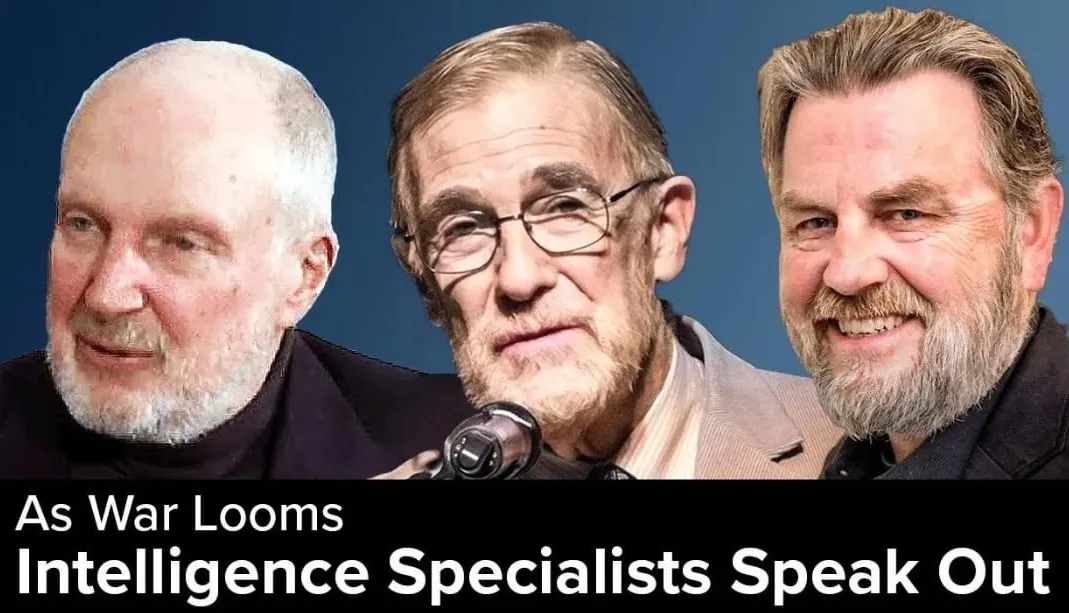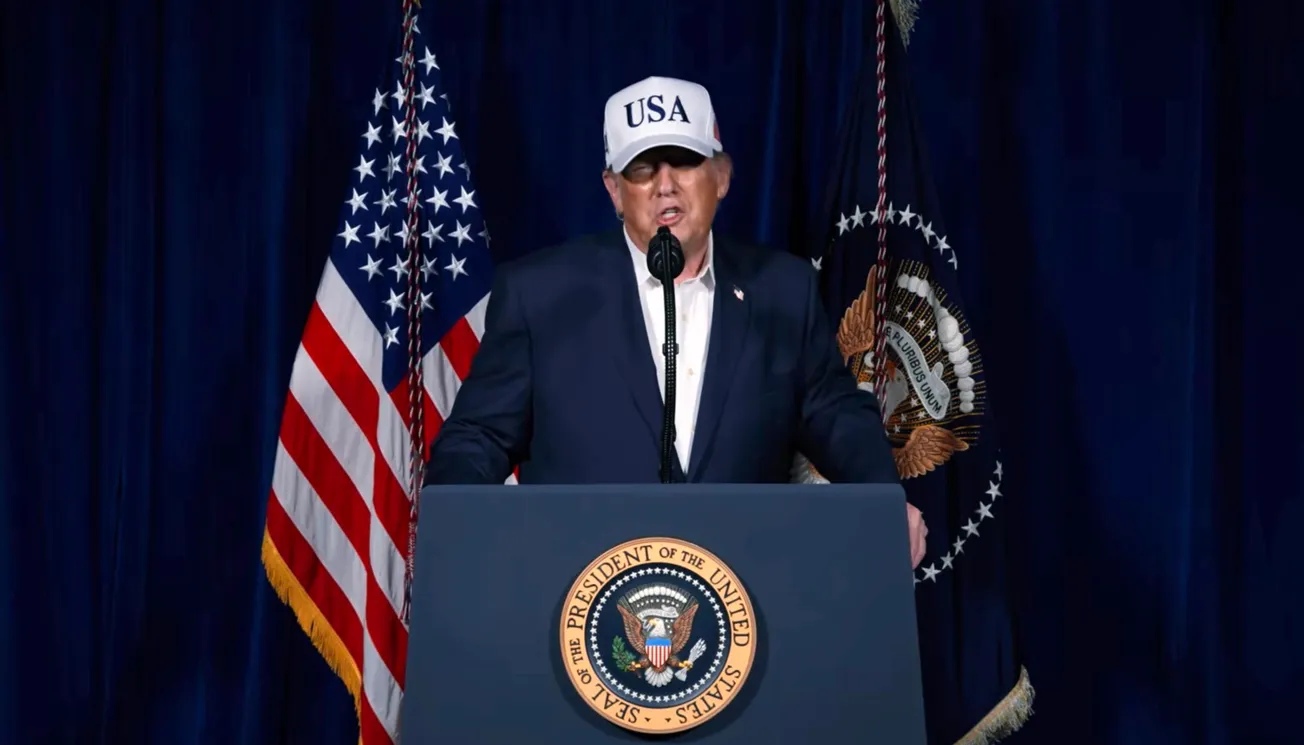This week’s 51st meeting of the International Peace Coalition (IPC) saw a fruitful colloquy among some of the U.S.’s foremost intelligence experts: former CIA analyst Larry C. Johnson; former U.S. diplomat, CIA official, and Islamic scholar Graham Fuller; and former CIA analyst and Veteran Intelligence Professionals for Sanity (VIPS) co-founder Ray McGovern; all in dialogue with Schiller Institute founder Helga Zepp-LaRouche’s strategic analysis—and proposed solutions—presented in her opening remarks. (See extended transcript of opening remarks.)
Helga Zepp-LaRouche observed that we are in a time when “history becomes more dense,” and profound change is proceeding at an accelerating pace, even as the danger of nuclear war rises. The International Court of Justice (ICJ) today issued an emergency order to halt Israel’s attack on Rafah. “The question is, will that be enforced, and if so, how?” Zepp-LaRouche asked. “It seems to be dawning on some people in the Western establishment that if you apply a double standard ... the legality of the system may be there, but it is about to lose its legitimacy.” This week Ireland, Spain, and Norway joined the list of 140 UN member nations that have recognized the State of Palestine. If Israel continues to flout the ICJ’s binding orders to stop the genocide in Gaza—as Prime Minister Benjamin Netanyahu has again sworn they will do—then Israel could be suspended from UN membership.
Looking at other theaters of strategic confrontation carrying the danger of escalation into nuclear war, Zepp-LaRouche asked whether the attempt on the life of Slovakian Prime Minister Robert Fico was made by a “lone assassin.” There are indications that he may have had assistance. Large influxes of money have flowed into NGOs, not only in Slovakia, but in Georgia, Serbia, and Hungary as well, whose leaders are all critical of Ukraine war funding, and are speaking out against the perpetrators of the destabilization operations. Georgian Prime Minister Irakli Kobakhidze posted on Twitter/X that he received a threat from an EU Commission member, warning that he could meet the same fate as Fico.
In Asia, newly inaugurated Taiwanese President Lai Ching-te gave an inaugural address in which he insisted that Taiwan is “a sovereign independent nation.” In response, China held military exercises around Taiwan, as a clear signal that they will not tolerate secession masquerading as “independence.” Zepp-LaRouche reminded the IPC participants that for decades, “One China” has been internationally recognized. She concluded by saying that the next six months will be decisive, and that we in the IPC, along with like-minded forces around the world, must put a different narrative, a different solution on the agenda, in the tradition of the Peace of Westphalia, using the Oasis Plan.
Larry C. Johnson contrasted present U.S. foreign policy with the Nixon period, when, despite the Cold War, we could actually talk to Russia and China. Now, “The United States is like a 3-year-old child with a hammer,” and everything looks like a nail. He warned that if this continues, “the U.S. will implode upon itself…. It is pretending that it can project military force in three theaters simultaneously.” Our Navy is completely vulnerable to the hypersonic weapons that Russia and China both possess. Johnson insisted that “people in Asia, Africa and South America are sick and tired of being bullied by the United States.”
Graham Fuller followed and said, “Larry and I have both toiled in the vineyards of intelligence.” Fuller said that the U.S. is unable to face the reality of its relative decline in the world. Referencing the “complicated, perhaps triangular relationship” in the Middle East between Iran, Saudi Arabia, and Israel, he observed that China had remarkably defused tension between the Saudis and Iran, which “took the wind out of the sails of the argument that ‘The Iranians are coming! The Iranians are coming!’”
Fuller concluded by saying, “It’s a cliché to say crises promote opportunities,” but he offered the hope that this will shake people up to come up with some new ideas.
Helga Zepp-LaRouche intervened to insist that it is our job to offer those new ideas. The Western nations act as if there were no tomorrow, no consequences, but “the way out would be so absolutely, breathtakingly easy.” She identified the expanding BRICS organization and the Oasis Plan as the path to a solution. None of the Global South nations has called the U.S. the enemy. We could work with them.
Ray McGovern recalled that he had started working as a CIA analyst in January 1964, as a specialist in Sino-Soviet relations. China and Russia “were squeezing each other....” Now “they’re in a fraternal embrace that won’t stop.” He has been surprised by many things, including the Russian military operation in Ukraine and the Chinese support for it; and their announcement of tactical nuclear weapons exercises. “None were pleasant surprises; I’m just afraid of what the next one might be.”
Meeting co-moderator Dennis Speed observed that these “surprises” represent the essence of intelligence work: the careful examination of “what doesn’t add up,” adding that the analyst must “poke reality with a stick,” and change the analysis as necessary. Read the EIR Daily Alert every day!
During the discussion, one of the first comments centered on the overriding importance of Lyndon LaRouche’s breakthroughs in economics, and praise of LaRouche by leading Russian economist Sergey Glazyev. Independent Congressional candidate Jose Vega, who has just successfully filed three times the required number of signatures required to attain ballot access, reported on his visits to New York campus encampments protesting the genocide in Gaza. LaRouche movement organizer Bill Ferguson reported on the May 23 Harvard commencement exercises: Trucks were driving around with neon signs denouncing as anti-Semites the 1,000 students who walked out to support 13 seniors barred from graduation over their role in the Gaza protests. LaRouche organizers displayed a banner: “Peace through Development: Build LaRouche’s Oasis Plan.” After the LaRouche organizers choral performance of peace songs, a policeman approached, saying “You’ve got really killer voices,” encouraging them to keep it up.
An Indian journalist elaborated on the importance of unity among the three, largest and founding members of the BRICS—Russia, India, China (RIC)—and pointed to the International North-South Transport Corridor (INSTC), extending from St. Petersburg through Iran and Central Asia, across the Arabian Sea to Mumbai in India, as an example of regional cooperation, notwithstanding the tensions in the region. Helga Zepp-LaRouche concurred: “The anchor of stability is the connectivity projects,” such as the BRICS and BRICS-Plus.
Other participants expressed anxiety about the U.S. presidential election. One person suggested that Biden might be the lesser evil; another stated the opposite. Co-moderator Dennis Small said that the very concept of the “lesser evil” comes from Aristotle, who did not believe in the Good. Throw Aristotle in the trash, and read Plato, to learn how to think from a higher vantage point from which the Good is attainable, was his advice. Zepp-LaRouche suggested support for independent candidates like Jose Vega and Diane Sare, concurring with Sare that no candidate running is qualified to be President of the United States. She added, “I would not bet the fate of the world on these election processes.” The confiscation of Russian assets may trigger an unprecedented financial crisis which will upset the applecart. Our efforts should concentrate on the proposed new international security and development architecture and the Oasis Plan. Echoing the comments of a participant from Mali, she said that we must “put the One Humanity first.”




